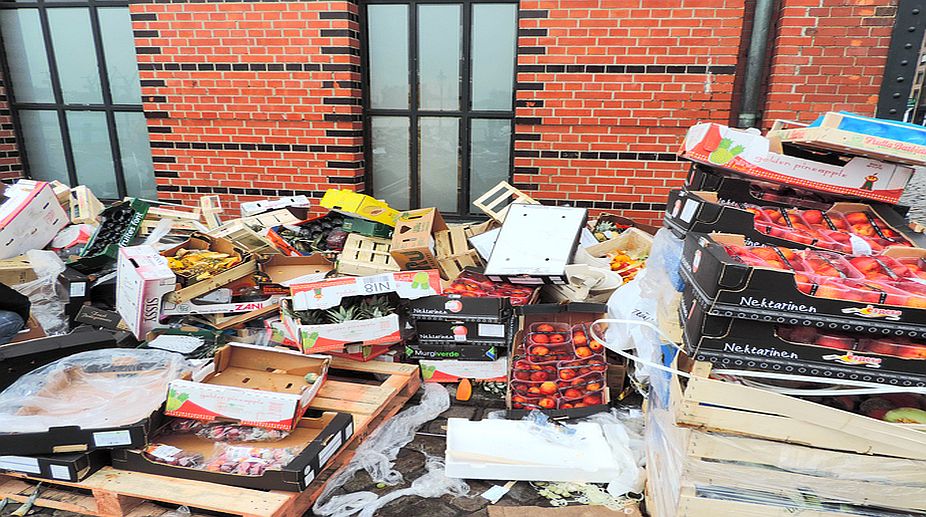A positive development in recent days relates to the initiative by the Union Ministry of Consumer Affairs, Food and Public Distribution to regulate the amount of food to be served by restaurants and hotels to their customers in order to prevent possible wastage. The Minister has also questioned the large quantity that is often served, resulting in unwarranted wastage. Critics have questioned the proposition as an infringement of personal liberties of citizens as it is not practically possible for anyone to fix a uniform standard to determine the dietary requirement of every individual. Indeed, the government’s quantitative food prescription for every individual has been criticised.
While there is definitely some merit in this criticism about the imposition of dietary uniformity across the country in our eateries and restaurants, the spirit behind the move is undoubtedly praiseworthy. The proposal calls for further reflection and debates before introducing the law, backed by supportive rules. The sight of leftover food on used plates in restaurants, eateries and hotels is revolting. Customers often order more than what they can consume. This results in wastage. Huge quantities of food are also wasted in wedding receptions, festivals, parties and so on.
It is almost a criminal wastage of national resources in a country where millions still can’t afford two square meals a day and in a world where millions go hungry. The money we waste may be ours, but the resources belong to humanity and we certainly have no right to waste food, howsoever affluent some of us may be.
There are many countries that have actually put in place a strong mechanism against such intentional or incidental food wastage. They include France, Germany and Switzerland. In Germany, diners in restaurants and hotels are fined one to two Euro if they don’t consume the food on their plates. This is part of its ‘eat up or pay up’ policy.
The system was put in place after customers were found to overload their plates during a buffet, expensive as it is. The piling up of food goes beyond the consumption capacity. The idea of ‘penalty’ was introduced to make people order or take only as much food as they could consume.
In Switzerland, people can eat to their heart’s content by paying a fixed price. However, no one is allowed to waste food. The penalty for wastage is an additional five Francs. Accordingly, the eateries in Switzerland add five extra Francs to the customer’s bill if he/she does not eat everything on the plate. The symbolic penalty is levied to prevent wastage. And yet, two million tons of ‘good food’ is wasted every year in Switzerland.
France recently passed a new law that requires large grocery stores to donate all unused but still edible food to various charitable organisations. All the large market chains, malls and stores are required to plan in advance by concluding formal agreements with various charities regarding the deemed donation and use of unused, but ‘safe-to-eat’ food.
Food that is not packaged properly or is damaged or is past the expiry date but is still safe to consume must be donated. The law has prescribed specific penalties for stores that fail to follow the government directives and deliberately spoil unsold food, thereby pre-empting their consumption by the needy.
A matter of concern is that there are many rich countries where a huge quantity of ‘fitto-be-consumed’ food is wasted every year. According to a 2014 report, 133 billion pounds of food i.e. 10 per cent of its total consumption are thrown away every year in the US. A recent report states that India loses 21 million tonnes of wheat every year owing to lack of suitable infrastructure and food storage facilities, including refrigerated transport, poor roads, inclement weather and corrupt practices. According to another estimate, foodgrains worth Rs 60,000 crore are lost every year in this country.
India has the world’s largest public distribution system with an estimated food subsidy bill of around Rs. 1.35 lakh crore, and we procure about 62 million tonnes of foodgrain every year to meet our national food security requirements. It is against this background that the idea to penalise food wastage is welcome, and needs to be pursued in right earnest. The country’s Food Security Bill has no provision to penalise wastage. Nor for that matter is the government under any obligation to ensure that the people are held accountable for their failure to protect foodgrain, but we should definitely start reflecting on the issue seriously.
In a country like India we cannot afford to allow criminal wastage of food by people howsoever resourceful they may be. Having resources at our disposal does not allow us to waste life’s essential and at the expense of millions who don’t have access to the same. Food security for all will not be achieved only by providing subsidized foodgrain. Equally important is the imperative to check irresponsible behaviour on the part of our citizens who need to learn such ‘table manners’ as valuing our precious food.
While we already have a well-defined protocol against wastage in the FCI godowns, there is need to create food storage space across the country, as has been done in West Bengal recently. However, instead of quantitative prescription of food for individuals, the proposed law should provide for a penalty in the event of wastage. This is an idea whose time definitely has come.
It has been suggested that if everyone on the planet consumed as much as the average US citizen, four Earths would be needed to sustain them. The arrogance of mammon has to be reined in if we really wish to take care of sustainable development and save this planet for posterity. This will reinforce the government’s essay towards food security.
The writer is Additional Secretary, Dept of Health and Family Welfare, West Bengal. The views expressed are personal and not the Government’s.











